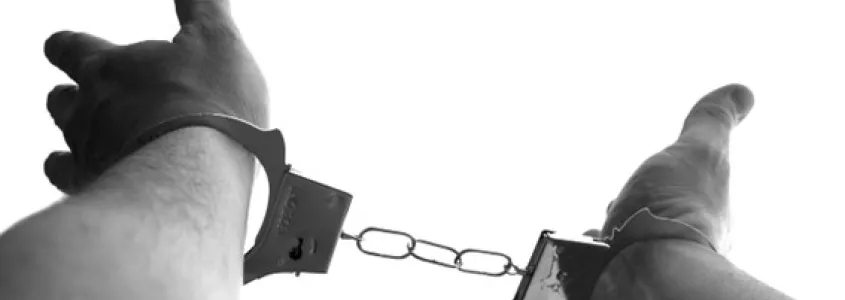
Table of contents
Flagrante delicto (also known as in flagrante delicto or in flagrante delicto) refers to a situation in which a person is caught in the act of committing a crime or immediately after committing a crime. In other words, it is a situation where the crime is being committed at the moment it is discovered or very shortly thereafter.
Flagrante delicto can be detected by any person, whether an ordinary citizen or a police officer. When a person is caught in the act of committing a crime, he or she is said to be in flagrante delicto and can be arrested by the police without a warrant. If you find yourself in this situation, it is advisable to seek advice from a criminal lawyer.
Arrest in flagrante delicto is an exceptional measure and is used to protect public safety and ensure the immediate arrest of the alleged offender. The law establishes certain limits and procedures that must be followed in the event of an arrest in flagrante delicto, in order to guarantee the rights of the detainee and to avoid abuses or arbitrariness.
Requirements for flagrante delicto
The following requirements must be met for an offence to be committed in flagrante delicto:
- The commission of the offence: It is necessary that the offence is being committed, has been committed recently or is being attempted. In other words, the person must be caught in the act of committing the offence or immediately after committing it.
- Perception of the offence: The offence must be perceived by a person other than the perpetrator, i.e. by a witness or by an authority with the power to prosecute the offence, such as a police officer.
- The possibility of immediate apprehension: The person committing the offence must be within reach of the authorities, i.e. it must be possible to apprehend him/her immediately without pursuit.
- Certainty of the offence: The authority arresting the alleged offender must be certain that an offence is being committed or has been committed recently. This certainty can be obtained by direct perception of the crime or by information provided by witnesses or complainants.
Arrest in flagrante delicto is an exceptional measure used to ensure public safety and protect society from potential crimes.
Consequences of a flagrante delicto
The consequences of a flagrante delicto vary depending on the type of offence and the laws of the country where the offence is committed. In general, consequences may include:
- Immediate arrest: If a person is caught in flagrante delicto, the police can arrest him or her immediately without a warrant. The person arrested must be informed of the reasons for his or her arrest and of his or her legal rights.
- Criminal prosecution: A person arrested in flagrante delicto may be subject to criminal prosecution for the commission of the offence. Criminal proceedings may include an investigation, trial and sentencing, which may result in imprisonment, fines or other penalties.
- Confiscation of property: In some cases, property used to commit the offence may be confiscated by the authorities, even if it does not belong to the offender. This may include vehicles, weapons or other objects.
- Criminal record: If the person is convicted of the offence committed in flagrante delicto, this may result in a criminal record, which may negatively affect their future employment and other areas of their life.
What should be done in the event of flagrante delicto?
In the event of a flagrante delicto, it is important to take the following steps:
- Call the police: In the first instance, you should call the police to report the crime and provide as many details as possible, such as the location and a description of the alleged offender.
- Remain calm: It is important to remain calm and not confront the alleged offender, as this may endanger your safety and the safety of others.
- Provide information: If you witness the crime, provide as much information as possible to the police, such as a description of the alleged offender, the time and place of the crime and any other relevant details.
- Do not interfere with the arrest: If the police arrive on the scene and arrest the alleged offender, it is important not to interfere with his or her arrest and to follow the police's instructions.
- Cooperate with the authorities: If you are asked to give testimony or provide additional information during the investigation or criminal proceedings, it is important to cooperate with the authorities and provide all necessary information.
In general, it is important to take precautionary measures and to call the authorities with any flagrant offences. This can help to ensure the safety of society and prevent future crimes.

"Anywhere in Spain"
With our online appointment system you will have immediate advice without the need for face-to-face visits or travel.
One of our lawyers specialized in your area of interest will contact you to formalize an appointment and make your consultation by video call.

Add new comment